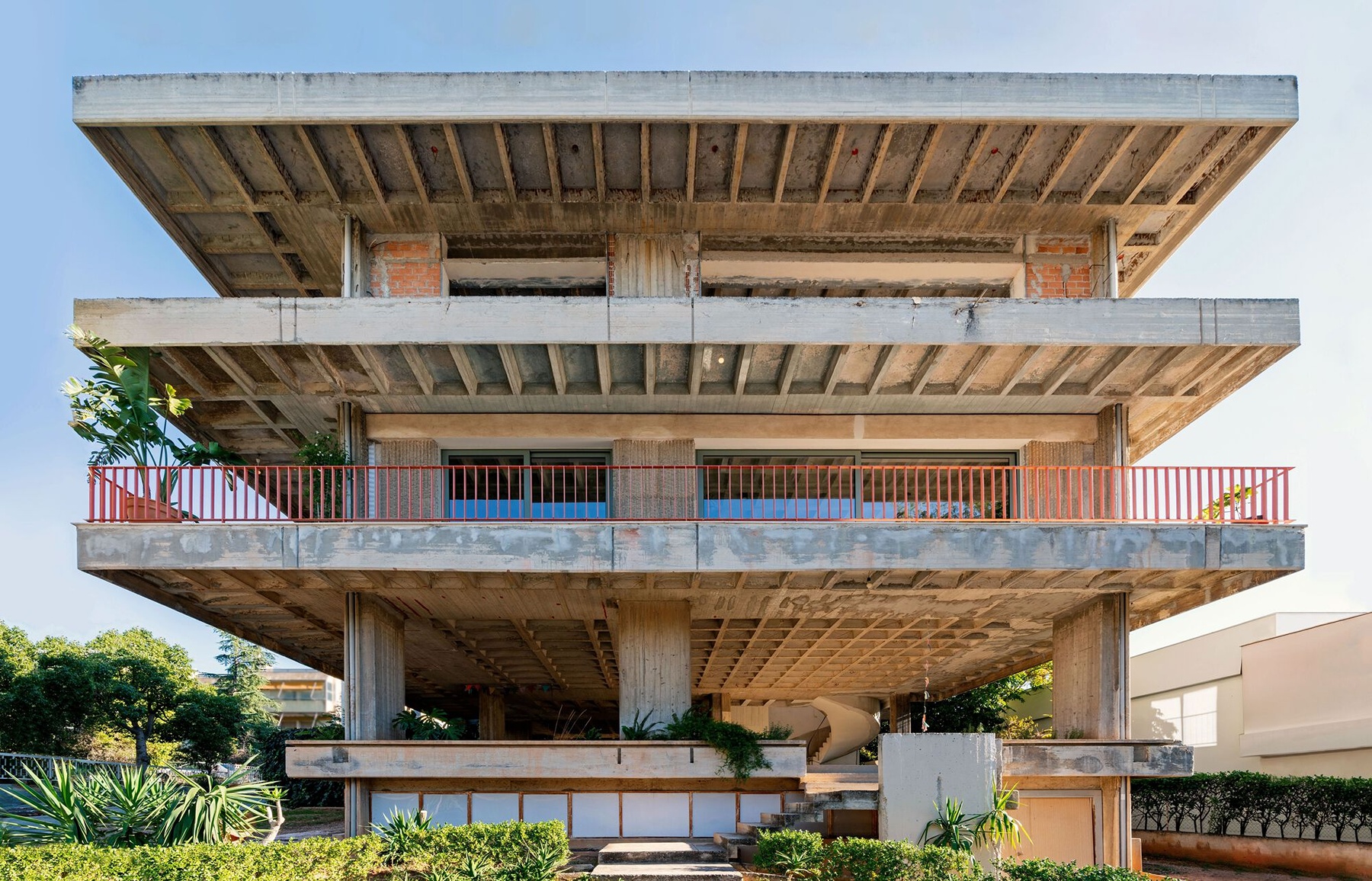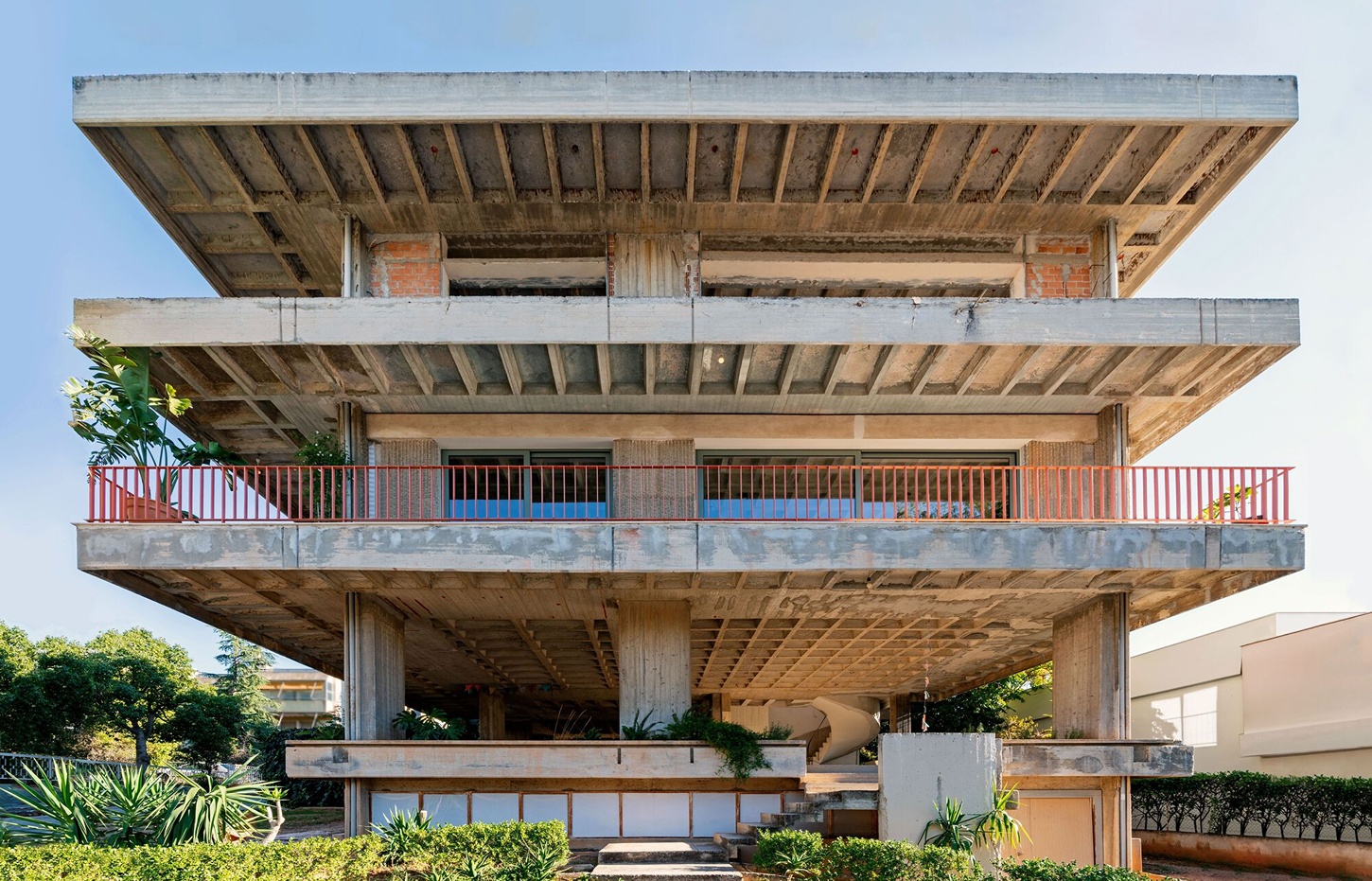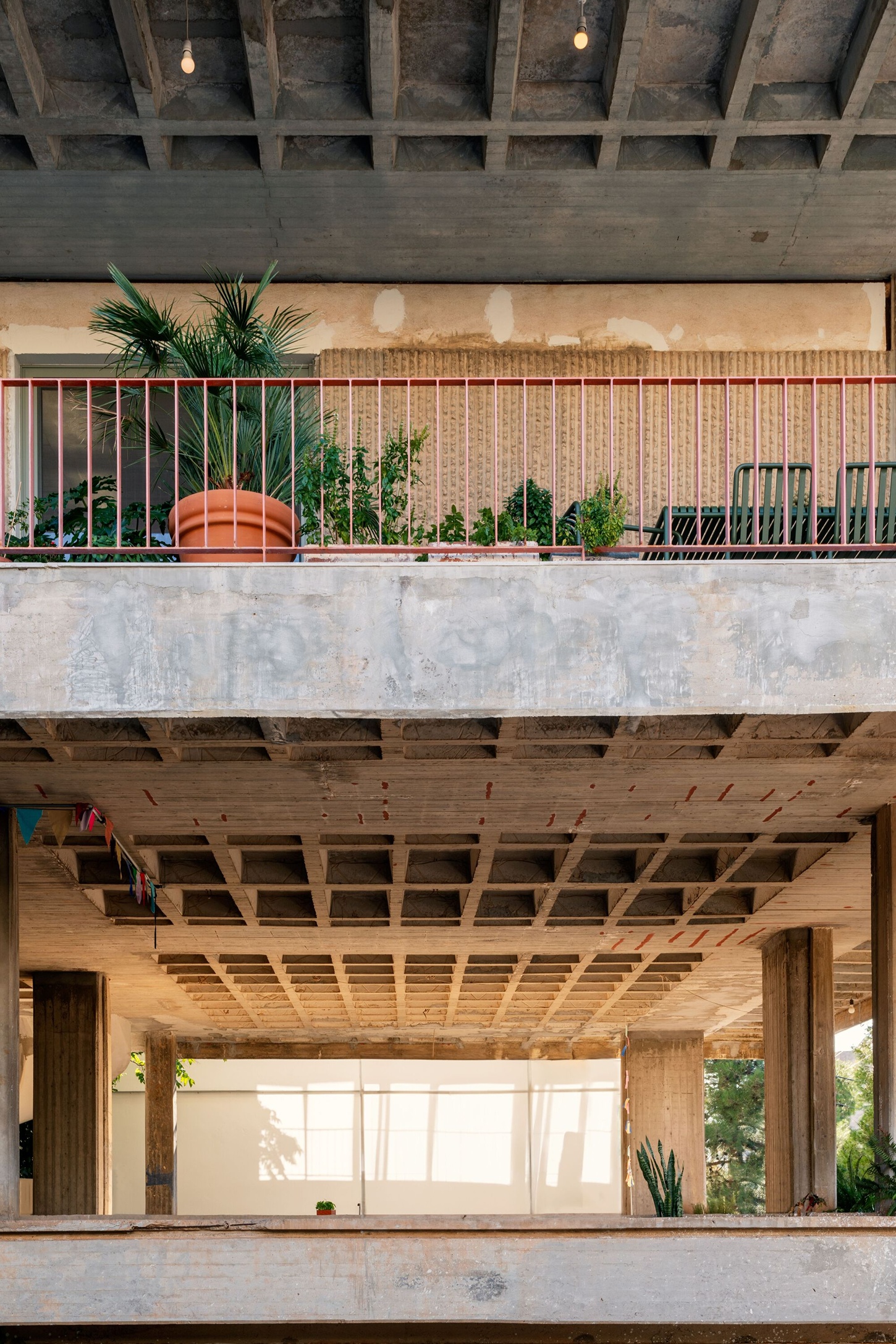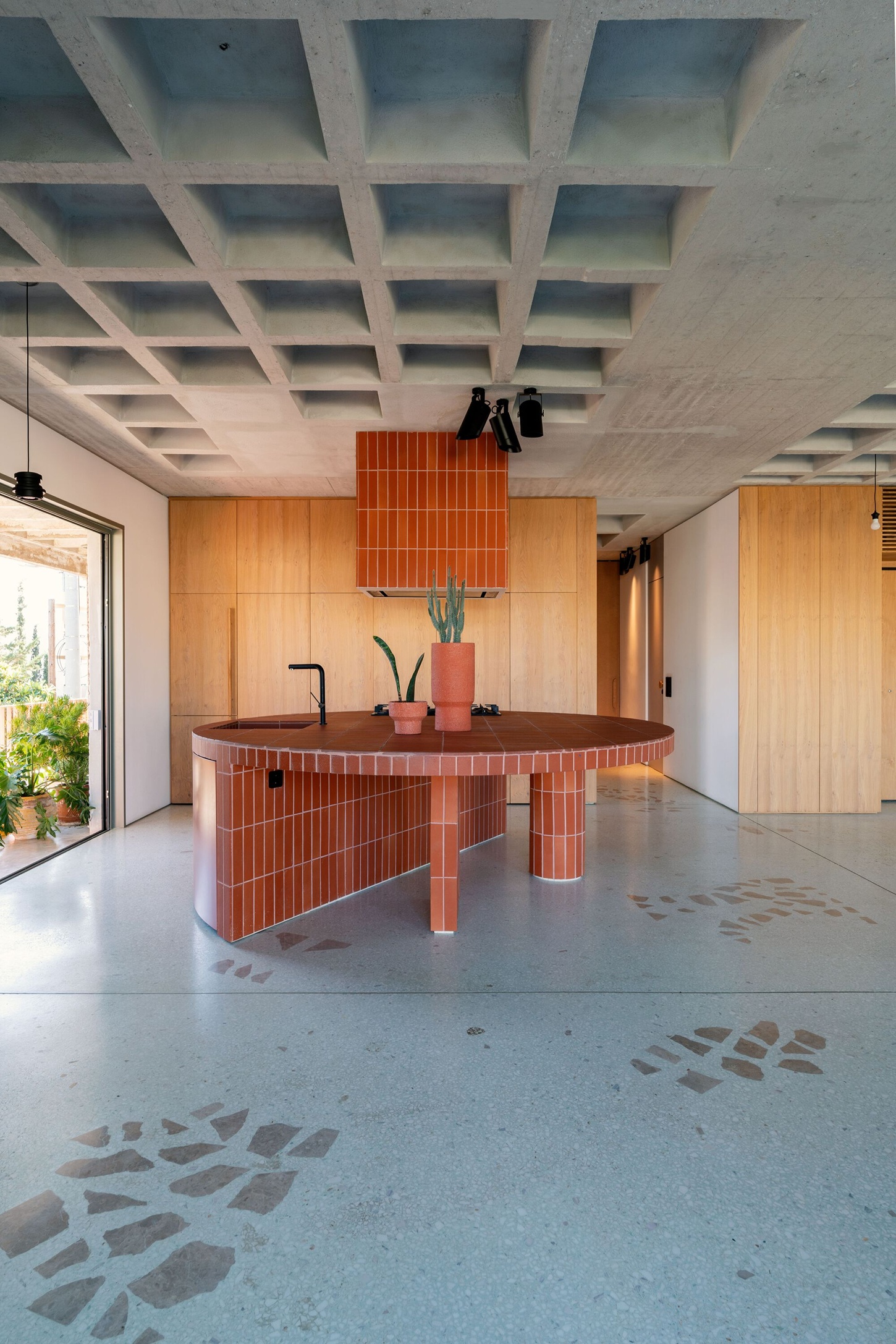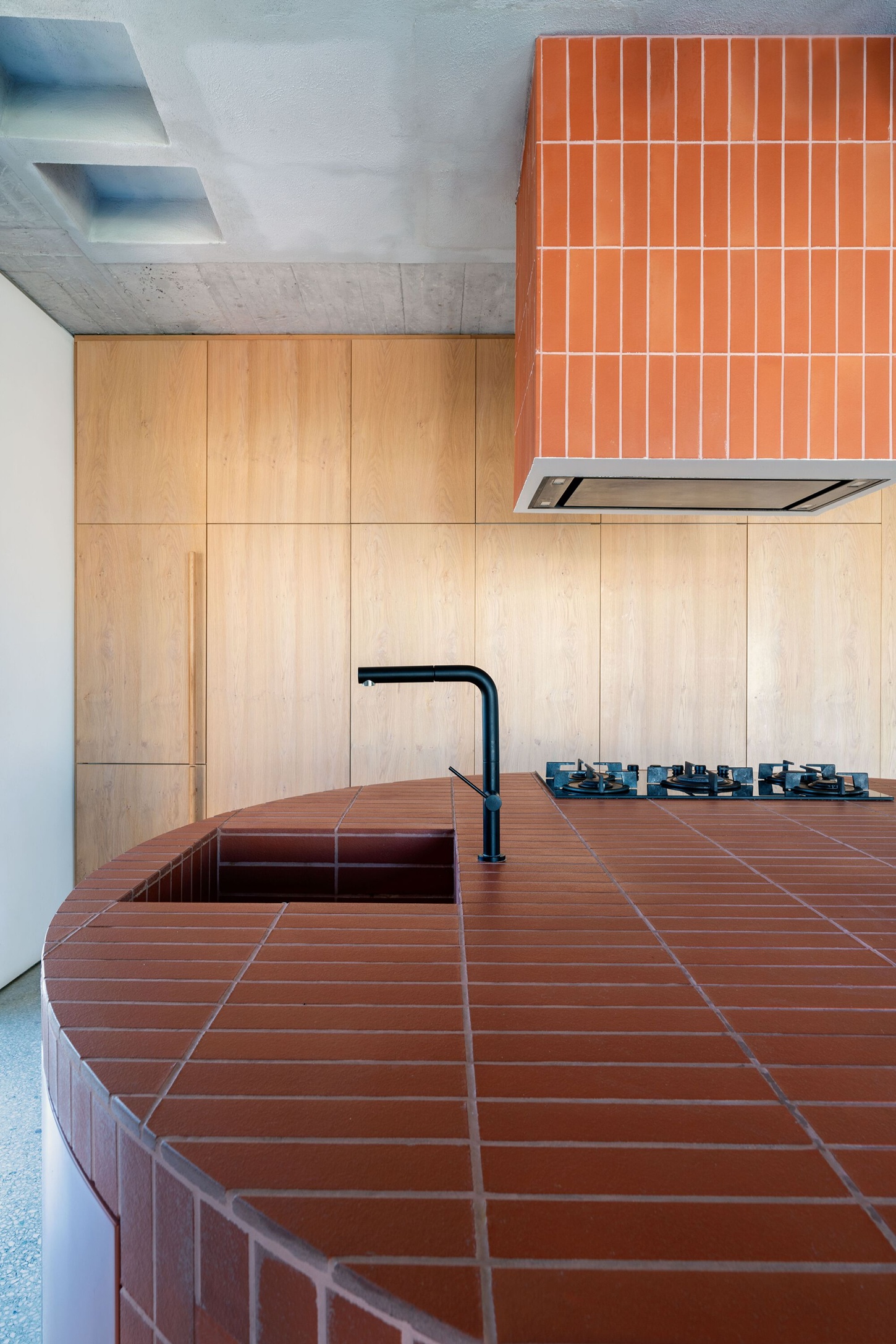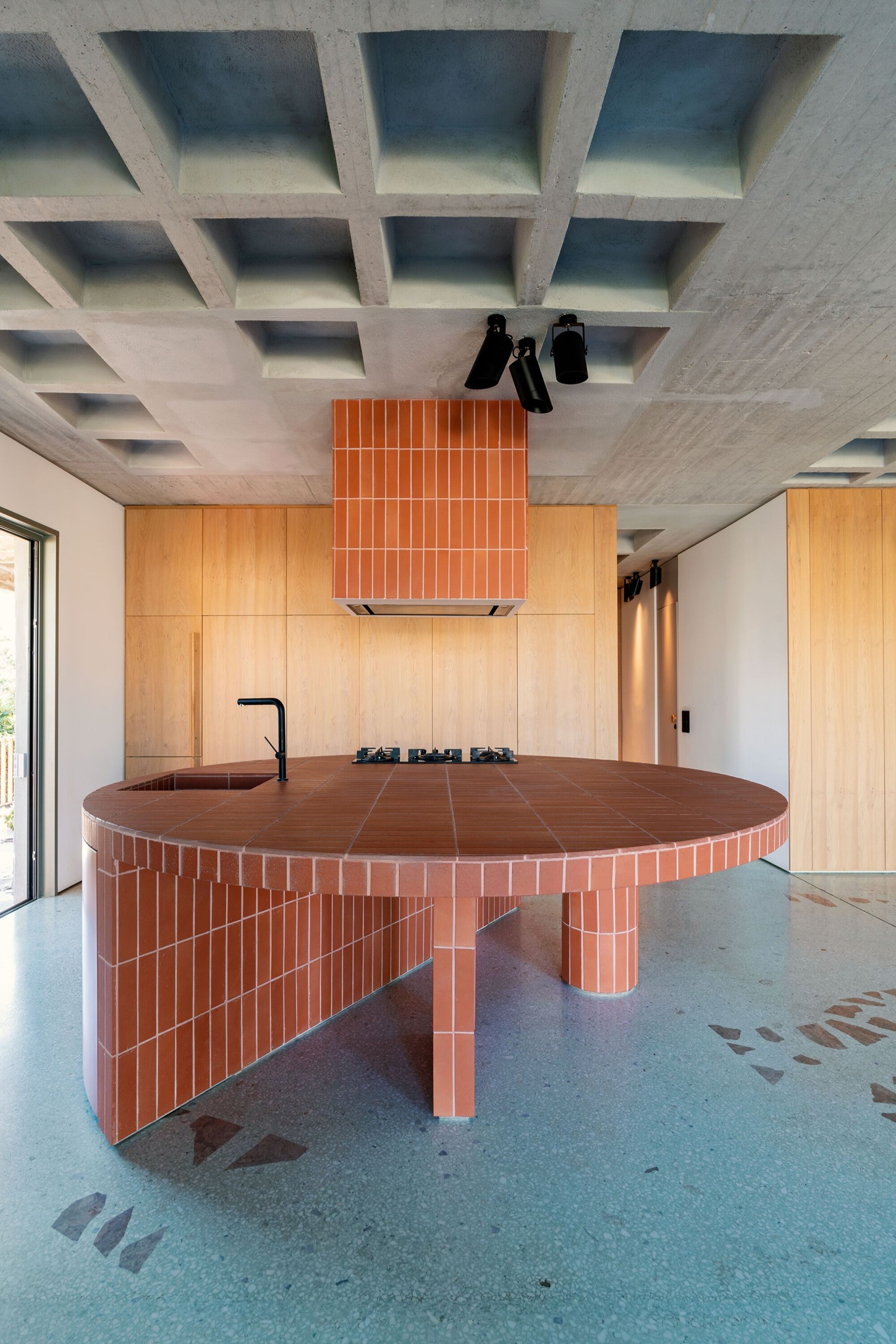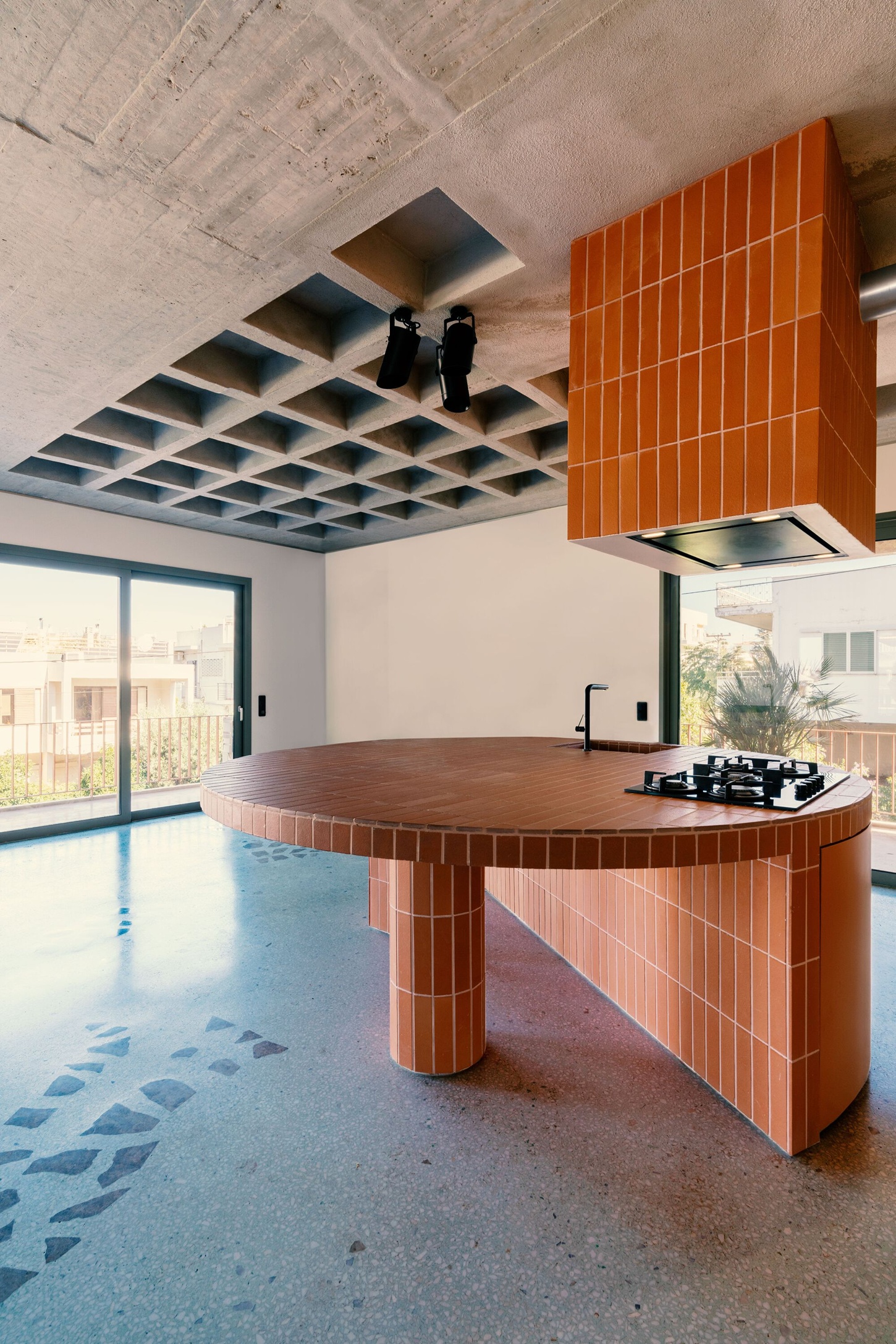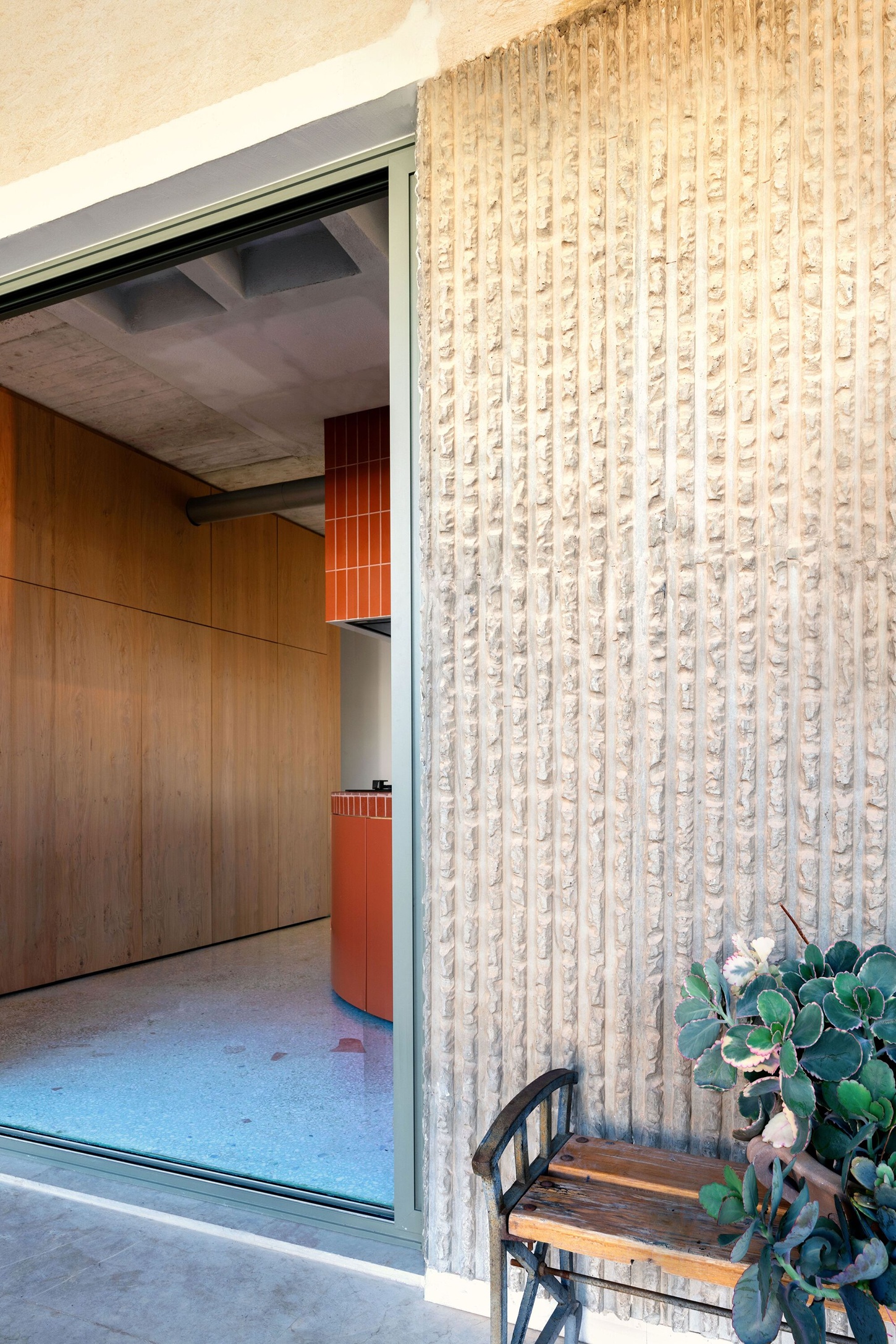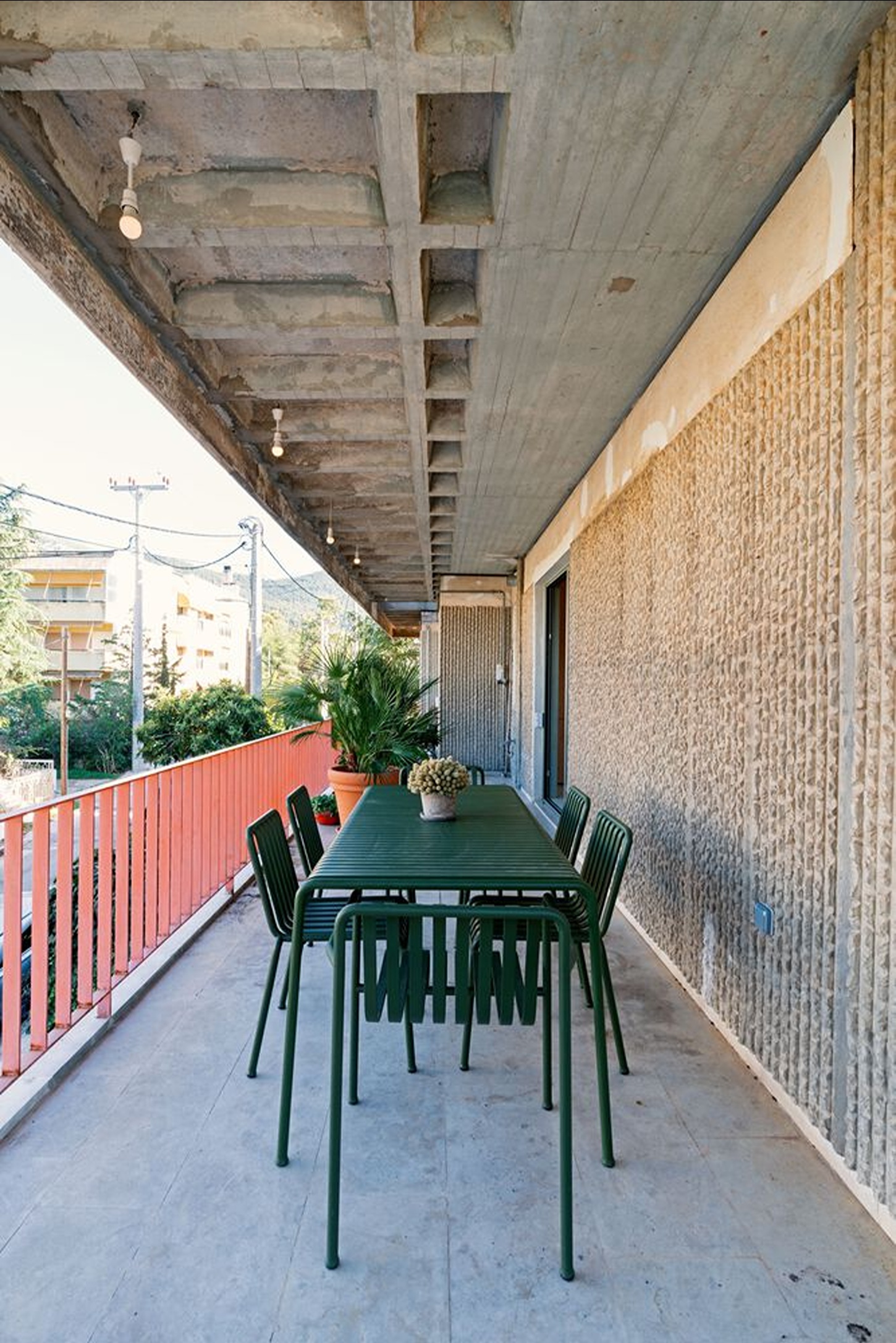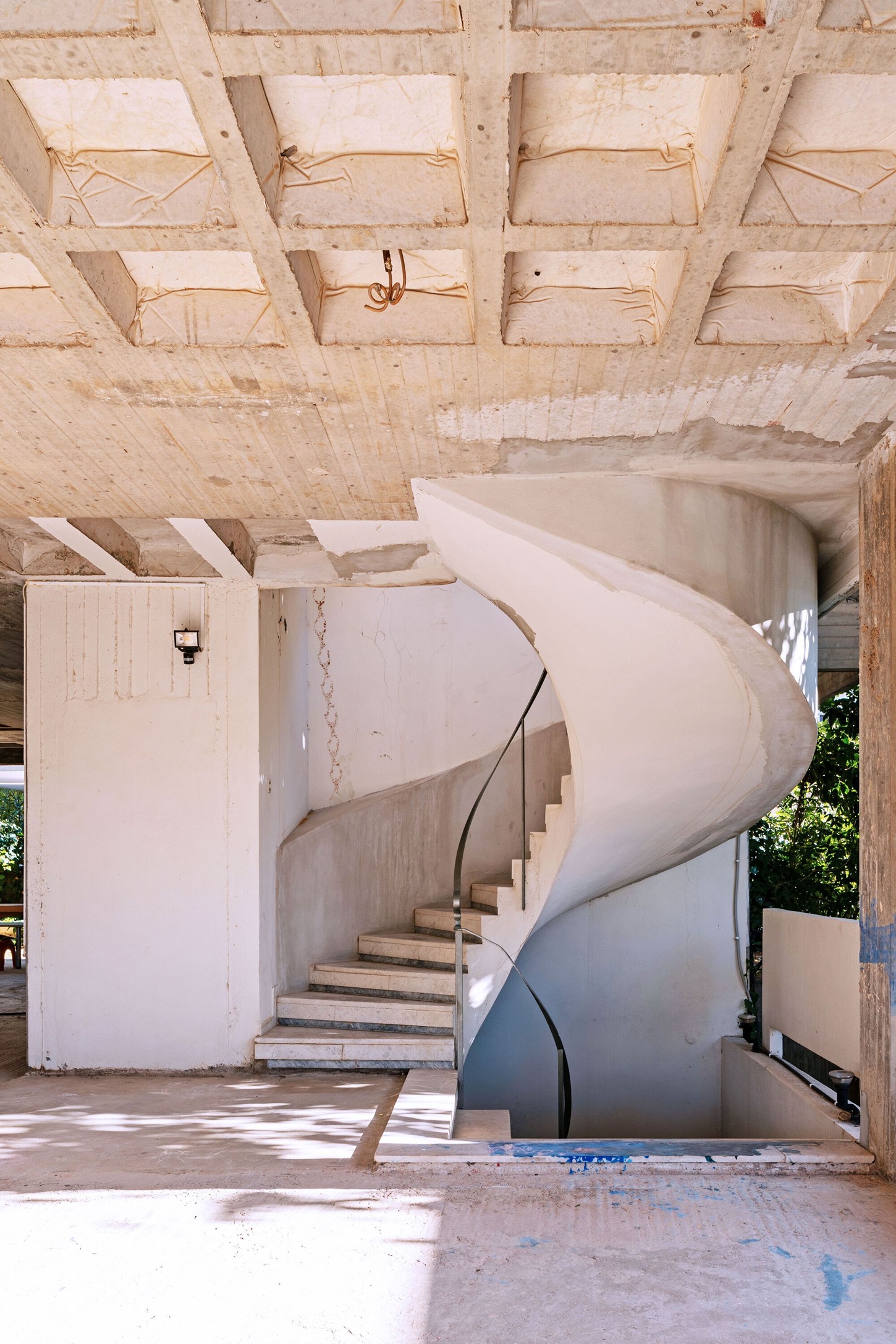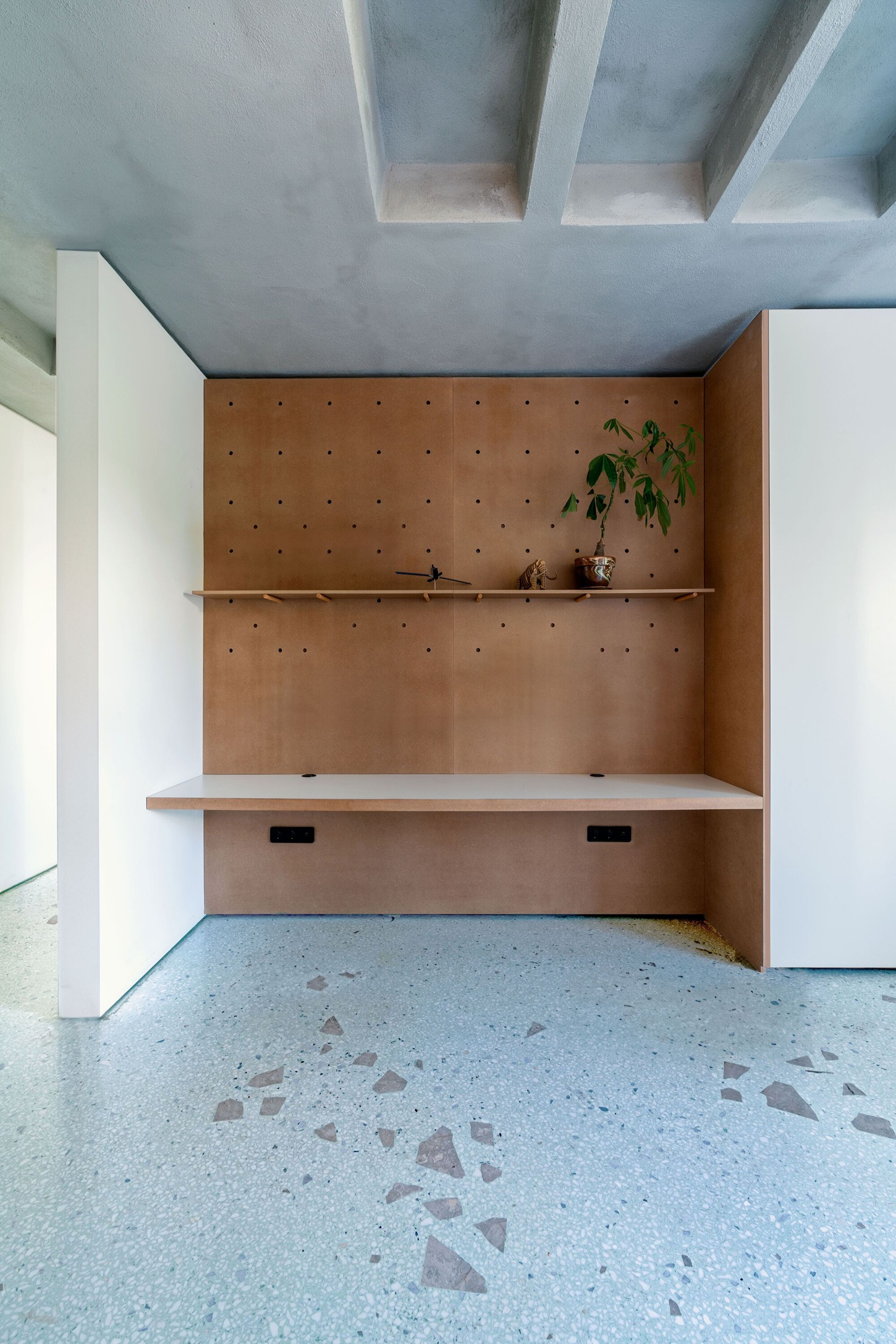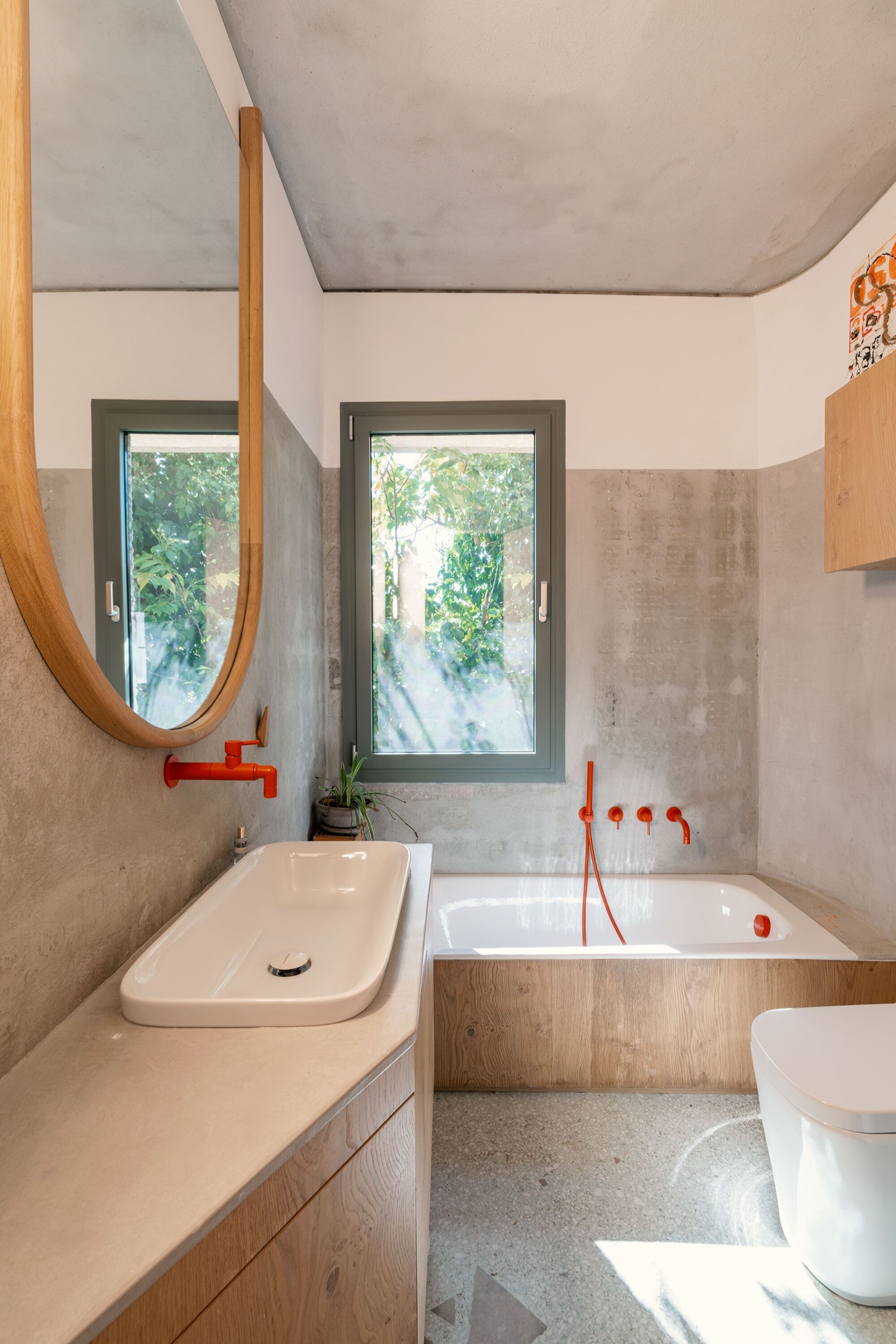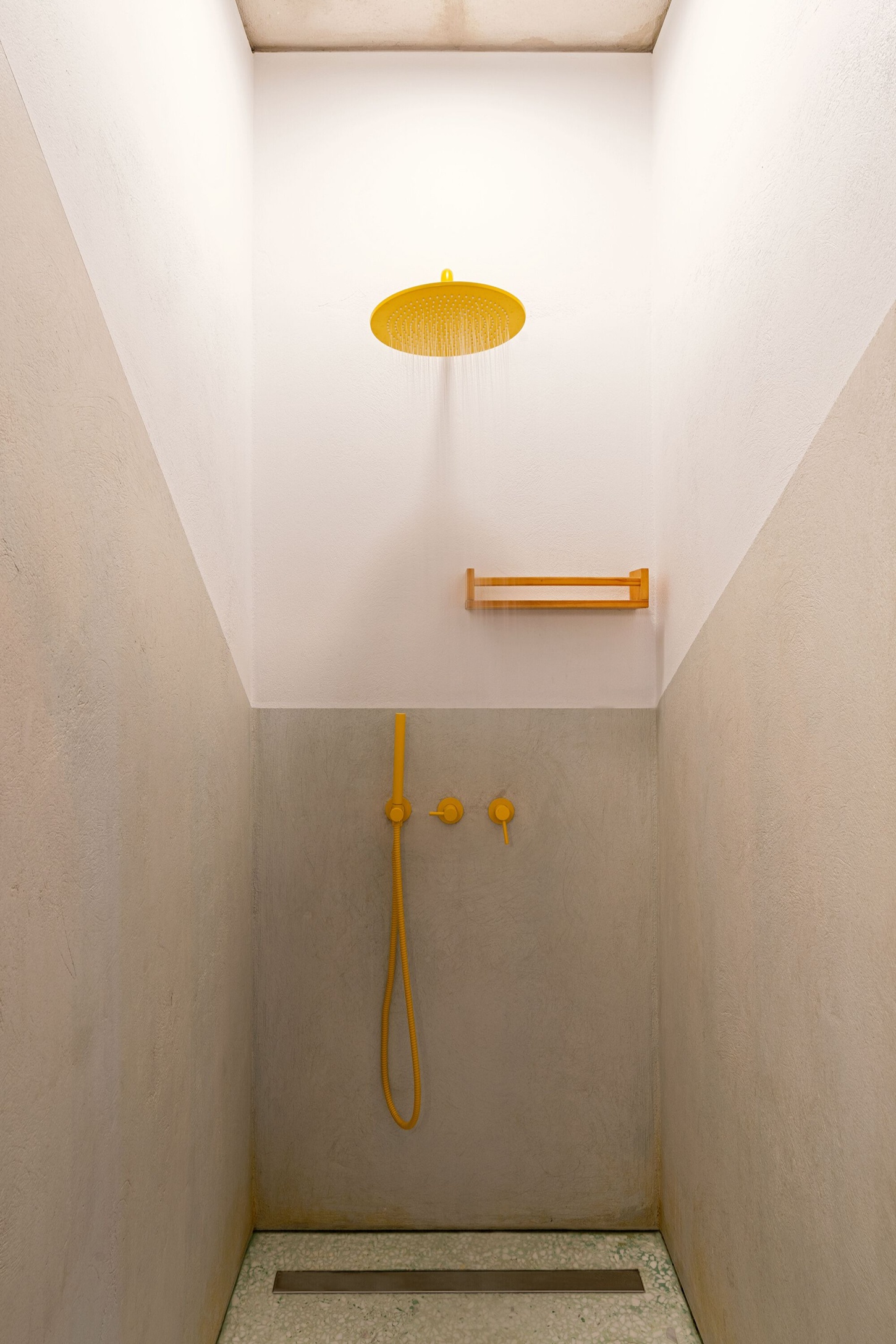The renovation, designed by DeMachinas with Elina Loukou, approaches the apartment in Athens as a spatial study. Not a makeover, but a calibration. Everything unnecessary is removed.
What remains is structure: exposed ceilings, open plan, a faint sense of stillness. Into this, three objects are placed. A round kitchen island that merges cooking and dining into a shared surface. A compact storage block that absorbs the everyday functions—pantry, wardrobe, utilities—into a single quiet volume. And a pivoting cross of two doors and two panels, rotating around a central axis. It opens, divides, shifts. A mechanism rather than a symbol, yet its presence quietly alters the logic of the rooms.
The building itself had been waiting. A modest modernist shell in a residential part of Athens, it had stood vacant for over thirty years—three floors, one apartment per level, elevated on a pilotis. The first-floor flat, acquired by a family, was never treated as a blank slate. Instead, it was seen as a place with a memory of itself. Unfinished, but not incomplete.
Construction revealed what had been hidden. The concrete waffle ceilings were uncovered and restored. The marble floors, removed and broken on-site, were recast as terrazzo—the fragments left where they happened to fall. In the bathrooms, a rough cement mortar behind old tiles was preserved as the final wall finish.
There is no decorative agenda. Surfaces are matte, tones neutral, details kept to a minimum. The architecture doesn’t insist on attention. It allows space—for use, for change, for quiet. In the city below, pilotis are usually claimed by cars. Here, the ground floor remains open and undefined, a covered void with no fixed program. The apartment above reflects this same openness. A home not designed to impress, but to be inhabited lightly. A set of precise gestures, calibrated to what was already there.

